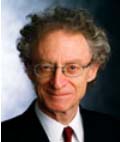|
News & Views item - June 2004 |
![]() Submissions
Regarding the Office and Role of the Chief Scientist to the Senate Committee Set
Up to Examine the Matter. (June 17, 2004)
Submissions
Regarding the Office and Role of the Chief Scientist to the Senate Committee Set
Up to Examine the Matter. (June 17, 2004)
 On 11 May 2004 the
Senate referred the matter of the Office of the Chief Scientist to the Senate
Employment, Workplace Relations and Education References Committee for inquiry.
On 11 May 2004 the
Senate referred the matter of the Office of the Chief Scientist to the Senate
Employment, Workplace Relations and Education References Committee for inquiry.
The committee was directed to examine the functioning of the Office of the Chief Scientist and, in particular, potential conflicts of interest which may arise when appointees to the position of Chief Scientist act in a part-time capacity.
A
public hearing has been scheduled for Friday, 2 July 2004, and the
committee expects to report on
30 July 2004.
A total of eighteen submissions have been made to the Senate committee and the list of itself makes interesting reading. Only one university (Monash) thought it worthwhile to make a submission. Neither the ARC nor NH&MRC offered one, but on the other hand Dr. Nelson's Department delivered one with 12 attachments and the Chief Scientist's submission contained five.
1 Dr Leanna Read, private member Prime Minister's Science, Engineering and Innovation Council
2 World Wide Fund for Nature Australia
3 Dr Trevor Kerr
4 Engineers Australia
5 CSIRO
6 Dr Geoff Garrett
7 Mr Peter Hoj
8 Cooperative Research Centres Committee
9 The Australian Institute of Geoscientists
10 Australian Academy of Science
11 Australian Geoscience Council Inc
12 Monash University
13 Federation of Australian Scientific and Technological Societies
14 Department of Education, Science and Training (12 attachments)
15 Australian Chamber of Commerce and Industry
16 Australian Conservation Foundation
17 Professor Helen Garnett, NT
18 Dr Robin Batterham, Chief Scientist (5 attachments)
With respect to the
matter raised by Senator Bob Brown as to whether the Chief Scientist, Robin
Batterham as a part-time holder of the position while being a paid employee of Rio Tinto
may be subject to conflicts of interest the eighteen submissions can be roughly
divided into:
All those who have had direct dealings with Dr. Batterham have found him to have never demonstrated a conflict of interest between his role as Chief Scientist and that of an employee of Rio Tinto - 9 submissions.
Those who are concerned that his duel can give a perception of a conflict of interest or such a duel role may lead to a conflict of interest by a Chief Scientist in future but did not state the Dr Batterham has shown bias - 4 submissions
Those that stated that Dr. Batterham has shown bias - 1 submission (see below)
Those who have no comment on the matter of a conflict of interest - 2 submissions
And DEST and Dr Batterham - 2 submissions to make up the total to eighteen.
The only submission that was definite with regard to Dr Batterham having shown bias in his advise to government is from the World Wildlife Fund which summarises its viewpoint:
However, the
most balanced of the submissions
comes from the Federation of Scientific and Technological Societies and
deserves being
read in its entirety![]() .
A couple of short excerpts:
.
A couple of short excerpts:
The first two Chief Scientists, Professor Ralph Slatyer (1989 – 1992) and Professor Michael Pitman (1992 – 1996) were located in the Department of Prime Minister and Cabinet and were full time-positions. At that time, the science group in PMC around the Chief Scientist had responsibilities for the Australian Technology Science and Engineering Council (a precursor to PMSEIC) and, FASTS understands, the Cooperative Research Centres (CRCs) program.
For the record, FASTS believes Dr Batterham is a first rate scientist with a distinguished record of high impact, peer reviewed academic publications and other important outputs including patents.
...[W]hile there is widespread respect and acknowledgement of Dr Batterham’s championing of science and technology and role in the Government developing Backing Australia’s Ability there is a view that his emphasis on commercialisation has understated the value of basic and strategic research.